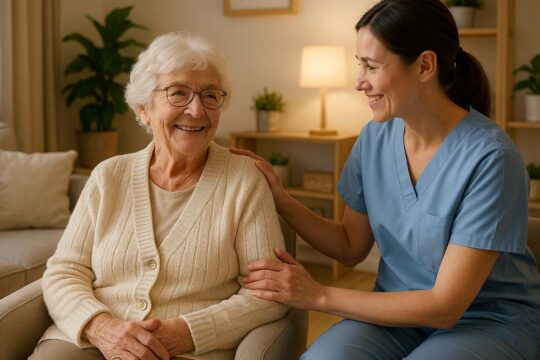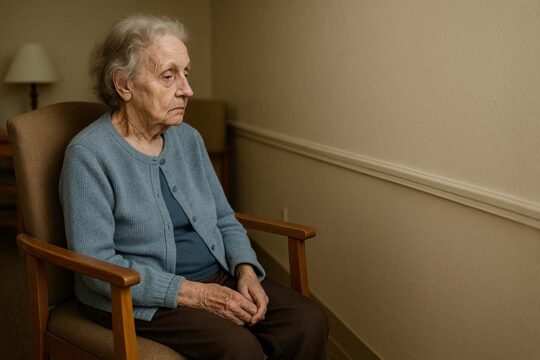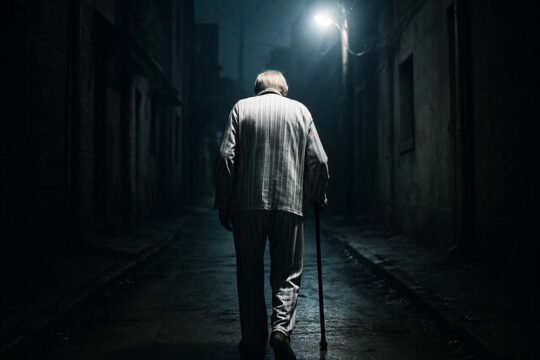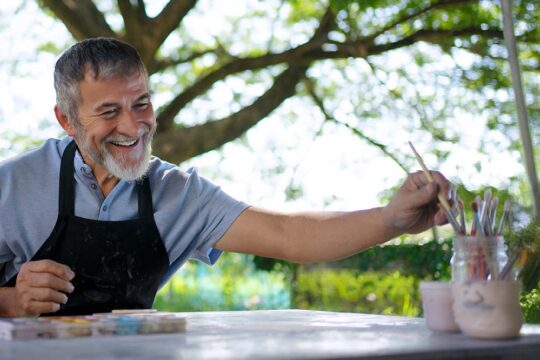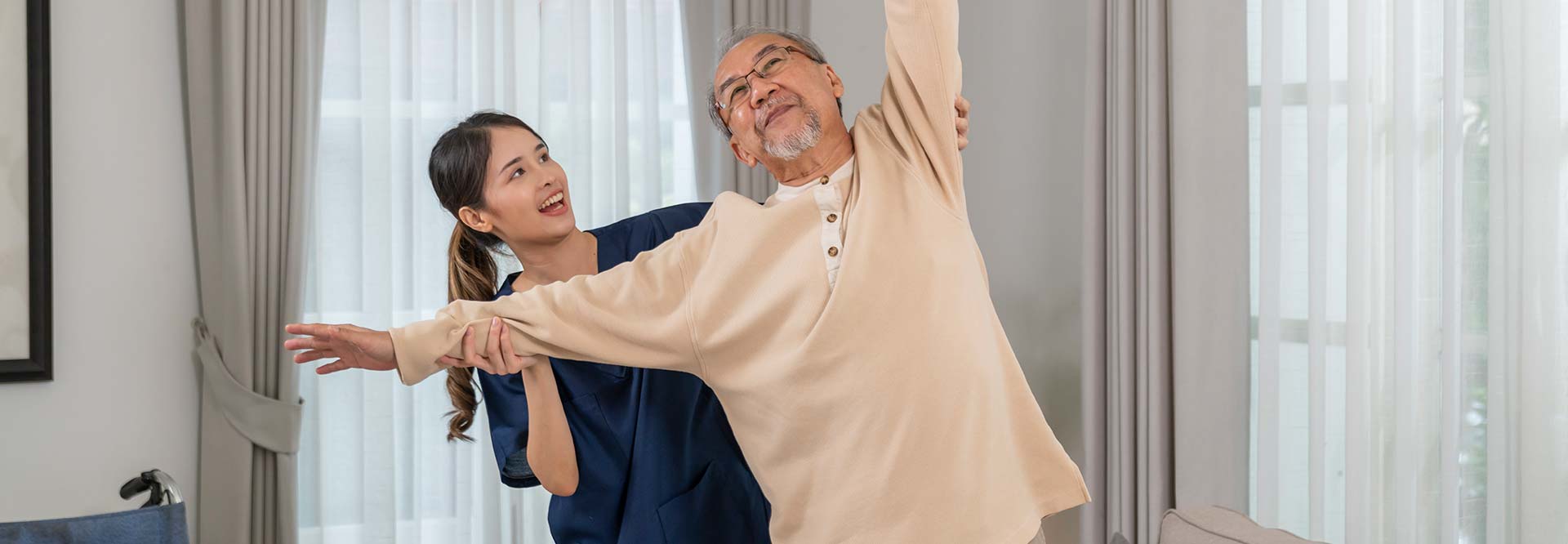
Why Do Elderly Lose Balance?
Why Do The Elderly Lose Their Sense of Balance?
Seniors are more likely to experience balance issues as their health deteriorates. Some health problems, like diabetes, heart disease, and a stroke, can make them feel dizzy or make it hard to keep their balance. While many health concerns can lead to balance problems, treatments are available to help. Gain a better understanding of elderly balance problems so you can start helping your parents improve their mobility.
At what age does balance decline?
Balance problems happen more often as people get older, starting around 65 years but can start earlier, later, or not at all for each individual. Adults over 65 who have trouble keeping their balance are more likely to fall. However, the decline of balance can start as early as in the 30s to the 50s or midlife.
What does losing your balance indicate?
As they age, your parent’s body changes, making them more likely to get some health problems. Loss of balance is usually a sign of another health problem, not a separate one that needs treatment. Many issues can cause balance issues from neurological issues, brain tumors, dehydration, etc., and all require a medical diagnosis to help determine the best course of action.
Balance starts with a constant flow of information from different parts of the body. The eyes, which are part of the visual system and help you figure out where you are in space, are one of these. Muscles, joints, and tendons are all part of the musculoskeletal system. The vestibular system is something that is found in the inner ear and plays a significant part in balance.
Losing balance can simply be an indication of less mobility and reliance on the systems controlling balance. Further, it can indicate a problem with one of the systems, such as the inner ear, blood pressure, reduced airflow, anemia, low blood sugar, or medications. If a prescription makes an older person loses their balance, they should talk to their doctor and ask for a replacement.
Symptoms of balance disorders in elderly and older adults
Older adults with a balance disorder may stumble while walking or find it hard to stand up on their own. They may also experience other symptoms, such as:
- – Vertigo or dizziness
- – The feeling of falling
- – Lightheadedness
- – Faintness or floating
- – Blurry vision
- – Confusion
- – Nausea or vomiting
- – Diarrhea
- – Changes in heart rate and blood pressure
- – Fear, anxiety, or panic
Once you have talked to your parent’s doctor, he or she may send you to a specialist who can help your loved one more. For example, sometimes, an undiagnosed condition like multiple sclerosis or an ear infection can cause seniors to have trouble with their balance. When these problems are fixed, they can sometimes help older people get their balance back on track.
What are the main causes of balance problems in the elderly?
Balance problems can stem from a myriad of normal health concerns, but they all require a trip to the doctor to help control the issues. While some out of the norm cause can induce balances complications, the most common include:
- – Diabetes
- – Heart disease
- – Stroke
- – Eye problems
- – Thyroid
- – Nerves
- – Blood vessels
- – Infections
- – Dehydration
- – Inner ear problems
- – Medications
- – Alcohol
Several conditions can cause balance problems with little to no options to improve the problem. Here are a few concerns about a lack of balance among the elderly:
Acoustic neuroma – a benign tumor that grows slowly on a nerve that affects your balance and hearing.
Meniere’s Disease – an inner ear disorder that can make your ears feel full and make you feel dizzy, is a common cause of balance problems.
Problems with Vision – cataracts and age-related macular degeneration are common vision problems that can make it hard to keep your balance as you get older.
Benign paroxysmal positional vertigo (BPPV) – is a common balance problem in older people that makes them feel like they are spinning.
Labyrinthitis – is an inner ear infection that makes it hard to keep your balance.
Presbycusis– also called age-related hearing loss, tends to happen slowly and get worse over time. Because of this, your loved one may not be fully aware of changes in hearing, which can sometimes lead to changes in bones, blood vessels, and tissues that make it hard for them to keep their balance.
Treatment for loss of balance in elderly and seniors
Before you can treat the balance problem, you need to determine the cause. For example, you need to discover an ear infection before you can treat it with antibiotics. Treatment varies by the source of imbalance and will require a doctor to determine the right course of action. Some causes may prevent the elderly parent from regaining their full balance, such as inner ear issues.
Seniors without a medical reason preventing balance can improve their balance by doing things like walking heel-to-toe, standing on one leg, and Tai chi.
Of course, older people should not do these exercises alone, especially if they have a lot of trouble keeping their balance. Seniors who have a lot of trouble keeping their balance should think about seeing a physical therapist.
Being inactive can make many health problems worse, like seniors having trouble keeping their balance. Caregivers can help seniors regain or improve their balance by encouraging them to make healthy changes to their lives, such as lowering their sodium intake, giving up alcohol, staying hydrated, keeping their blood pressure in check, losing weight, and exercising correctly.
If your loved one is staying in their home as they get older, you might want to install things like handles near toilets and showers, motorized chairs that lift up to make it easier for older people to get up, walkers, and canes. These devices can help your aging parent stay safe, especially if their balance keeps getting worse.
People over 60 should not ignore problems with their balance. They may need to give up some activities, such as walking upstairs allow or driving. They can improve their balance with physical therapy, but they may still need extra help, such as a walker, cane, or handrails around the home. Hearing aids can help a lot of older people who have trouble hearing because of getting older.
Can balance be restored in elderly?
Some balance problems can be helped by doing exercises that involve moving the head and body in certain ways. A physical therapist or another professional who knows about balance and how it works with other parts of the body makes up exercises for each patient. High or low blood pressure can cause problems with balance, which can be fixed by eating less salt, staying at a healthy weight, and working out. However, some adults may not be able to regain their balance.
Other considerations for loss of balance in elderly
Some seniors with a balance disorder may not be able to get rid of their dizziness completely and will need to find ways to deal with it long-term. Options include medical equipment like a cane, walker, or wheelchair. Some options to consider include removing trip hazards, installing handrails, widening entrances, and replacing steps with gentle ramps to make your loved one’s house safer. Also, look for non-slip shoes, especially in wet weather.
Another option includes bringing in outside help, as your elderly parent should not be expected to cope with balance problems alone. They need long-term care as the problem worsens with age. Whether you choose a companion or a professional aide, your parent will need help with every aspect of life with balance issues from cooking to bathing while still maintaining their independence.
Conditions both inside and outside the home can make it more likely that someone will fall. On the outside, a senior might trip over uneven pavement or lose his or her balance while walking across an uneven lawn. If snow and ice are not cleared away during the winter, it could make people fall. When loose area rugs move, they can cause an older person to lose their balance.
Many older people would rather stay in their own homes than move to an assisted living facility. Nursing facilities such as Stellar Care can help seniors with balance issues in assisted living. We can be there when your senior needs us and help with their day-to-day functions. They deserve the help they need for a relaxing and enjoyable retirement, so when it becomes unsafe for them to live at home alone, consider the next best option.
Call Stellar Care today to learn more about the options available to seniors with balance issues. While they may need help, they can maintain their own space and living in a community with their peers. Start the new leg of your parent’s journey by checking out our website today.
Related Articles
Discover the key differences between retirement homes and assisted living to help you choose the right care for your loved one’s needs.
Learn the risks of leaving a dementia patient alone, legal responsibilities, care strategies, and how to plan for their safety.
Learn why dementia patients wander at night, how to prevent it, and when memory care is the safest option for your loved one in San Diego.
Compare memory care and assisted living, from services and costs to safety and staffing, to find the right senior care in San Diego.
